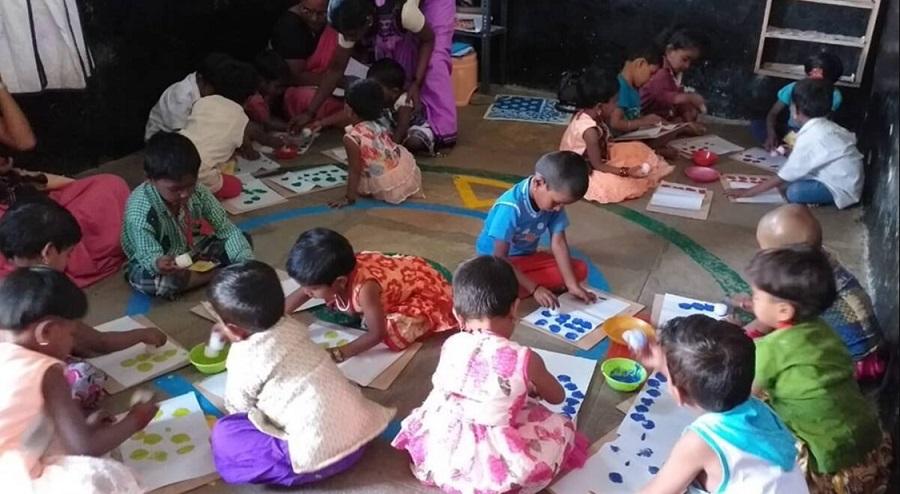Context: In September 2022, the Women and Child Development Minister Smriti Irani launched the ‘Poshan Bhi, Padhai Bhi’ campaign, which aims to transform the 14 lakh Anganwadi centres into pre-schools that offer early childhood care and education. This campaign is focused on providing early learning opportunities to children.
Buy Prime Test Series for all Banking, SSC, Insurance & other exams
About the “Poshan Bhi, Padhai Bhi” campaign for Early Childhood Care and Education (ECCE):
| Characteristic | Specifics |
| Age group being focused on | The age group of focus is children aged up to six years, with a particular emphasis on those under the age of three. |
| National Education Policy | The National Education Policy places significant importance on developing a strong foundation in literacy and numeracy skills, with a particular emphasis on using the child’s mother tongue. |
| Proposals of the High-Level Task Force on Early Childhood Care and Education (ECCE) in 2022 |
|
| What is Early Childhood? | Early childhood encompasses the critical developmental period from birth to six years, which includes distinct phases and age-related necessities. |
| What is Anganwadi? | Anganwadi centres are rural childcare facilities that serve as an essential connection between the government and rural communities, specifically expecting mothers, new mothers, and children below six years of age. These centres offer fundamental healthcare, nutrition, and early childhood education services to women and children living in their respective villages. |
What is
UNICEF defines early childhood as the duration from conception through the age of eight. Early childhood care and education (ECCE) goes beyond preparing children for primary school. It focuses on the comprehensive growth of a child’s social, emotional, cognitive, and physical requirements to establish a sturdy and extensive foundation for lifelong learning and well-being. SDG 4‘s Target 4.2 aims to provide all girls and boys access to quality early childhood development, care, and pre-primary education by 2030.
Significance of
- Early childhood is a period of rapid growth and development, with the brain developing most during this time.
- More than 85% of a child’s brain development happens before the age of 6, underscoring the importance of providing appropriate care and stimulation during early childhood for healthy brain growth.
- Access to quality early childhood care and education (ECCE) is crucial for every child.
- The overall goal of ECCE is to achieve optimal outcomes in various domains, including physical and motor development, cognitive development, socio-emotional-ethical development, cultural/artistic development, and communication and early language, literacy, and numeracy.
- ECCE also emphasizes developing social capacities, such as teamwork, cooperation, courtesy, ethics, and personal and public cleanliness.
- These early years lay the foundation for a child’s learning and overall development, better preparing them for primary school and improving their education outcomes.
- Quality ECCE can also reduce repetition and dropout rates, especially among children from vulnerable groups.
- Additionally, it promotes human resource development, gender equality, and social cohesion, while also reducing costs associated with later remedial programs.
- An overview of 56 studies conducted in 23 countries has shown that ECCE has positive impacts on health, education, cognitive ability, and emotional development.
Challenges for
- ECCE is faced with the challenge of a shortage of trained teachers, which hampers the delivery of quality education.
- Anganwadis, which serve as important early childhood care centers in rural areas, lack the necessary infrastructure and educational resources. This results in a concentration of children aged 2-4 years, with a lower number of children in the 4-6 years age range, which is a crucial period for education. Moreover, there is a dearth of trained teachers dedicated to early childhood education in Anganwadis.
- In private pre-schools, formal teaching and rote memorisation dominate over play-based learning.
- A 2017 study by Ambedkar University found that a significant proportion of children who completed pre-primary education, either in public or private institutions, lacked the necessary school readiness competencies when they started primary school.
You may also read this:
- Pradhan Mantri Jeevan Jyoti Bima Yojana Completes 8 Years: Key Details and Eligibility
- Pradhan Mantri Suraksha Bima Yojana: Eligibility, Coverage, And Benefits



 Indian Olympic Medal Winners List Till N...
Indian Olympic Medal Winners List Till N...
 Who is the Inventor of the Gramophone?
Who is the Inventor of the Gramophone?
 HS Dhaliwal Appointed New DGP Of Andaman...
HS Dhaliwal Appointed New DGP Of Andaman...
